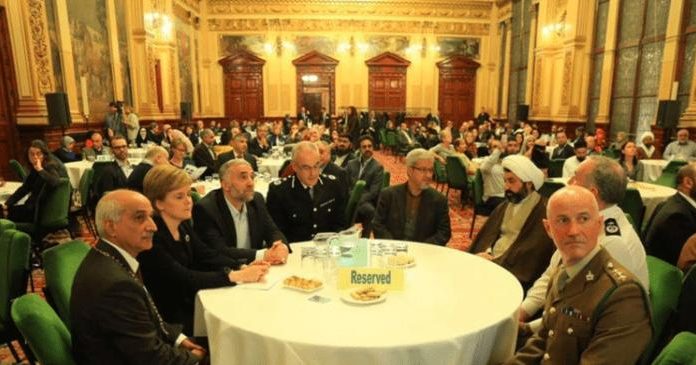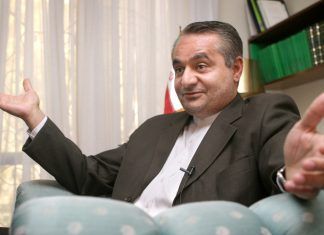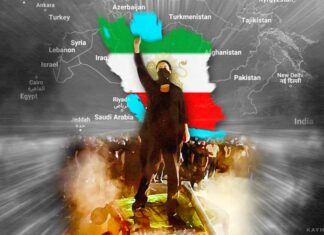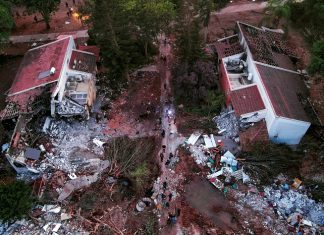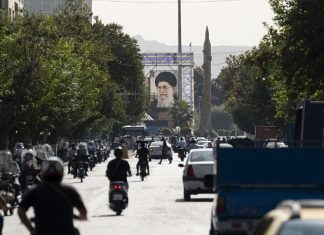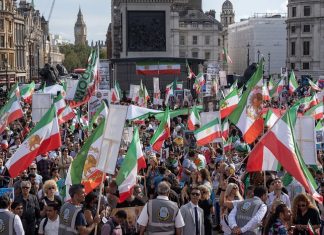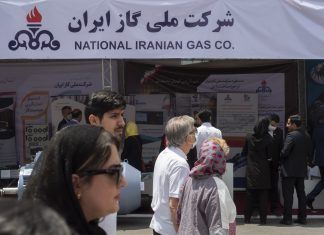By Potkin Azarmehr
[Potkin Azarmehr is a London-based investigative journalist, business intelligence analyst, and TV producer who was born in Iran. He regularly contributes to newspapers and television networks, commenting on Iran and Middle East-related news. The views expressed are his own.]
This week, Richard Ratcliffe, the husband of the jailed British-Iranian dual national Nazanin Zaghari-Ratcliffe, has gone on hunger strike in an attempt to persuade the UK foreign secretary to do more to bring his wife back from prison in Iran.
UK Will Not Change Its Approach to Securing Zaghari-Ratcliffe Release, Her Husband Says
One effective pressure lever the British government could use against Iran is to close down at least one of the five Islamic centers affiliated with Iran’s Supreme Leader and attempt to dismantle the Islamic Republic of Iran’s network in the UK.
Iran’s infrastructure of numerous institutions to propagate its ideology and recruit operatives has been growing and consolidating in the U.K. more than in any other European country, and successive British governments have allowed this to happen.
Iran’s five Islamic centers in England are the core of the regime’s complex network in the UK. Their main task is to establish umbrella institutions, education centers, charities, and media outlets and even to infiltrate the British political and financial establishment.
Prime Minister Boris Johnson’s government, however, like that of his predecessors, seems to have no problem allowing the centers to proliferate.
Last month, newly appointed Foreign Secretary Liz Truss met her Iranian counterpart and called for the immediate and permanent release of all 10 British detainees held in Iran, but she made no reference to the activities of the Islamic centers in the UK, nor did she threaten to close them down. This is despite the fact that Britain has been unable to re-open the British Council in Iran.
The five Islamic centers are, in essence, the Supreme Leader’s flagship offices in the UK. They are based in London, Manchester, Newcastle, Birmingham and Glasgow. In this article, I will focus on these Islamic Centers.
In June 2019, Hujjat al-Islam Seyyed Hashem Moussavi was appointed directly by the Supreme Leader, Ayatollah Ali Khamenei, as the fourth director of the Islamic Center in England. The ceremony to inaugurate him as the new director was attended by Iran’s ambassador in London and representatives of other Iranian institutions in the UK.
Hujjat al-Islam Mohsen Qomi, the Supreme Leader’s deputy for International Communications, read out Khamenei’s letter appointing Hashem Moussavi, and commended the work done by the previous director, Hujjat al-Islam Shomali.
Hashem Moussavi, the current head of the Islamic Center in London, studied at the Feyzieh seminary school in Qom, the bedrock of Iran’s Ayatollahs. He is also a graduate of the Imam Sadegh University in Tehran, an elite institution which has trained many of the current high-ranking officials in the Islamic Republic of Iran.
The vetting process for the candidates to enter Imam Sadegh University is very strict and includes thorough background checks of themselves and their families. Study of a foreign language as well as extensive Islamic studies is mandatory for the students regardless of their main subject.
Prior to becoming the new director of the Islamic Center in London, Hashem Moussavi taught at the Elemieh seminary in Qom, East Tehran seminary, Al-Mehdi Institute in Birmingham and the International Al-Mustafa University in the Philippines.
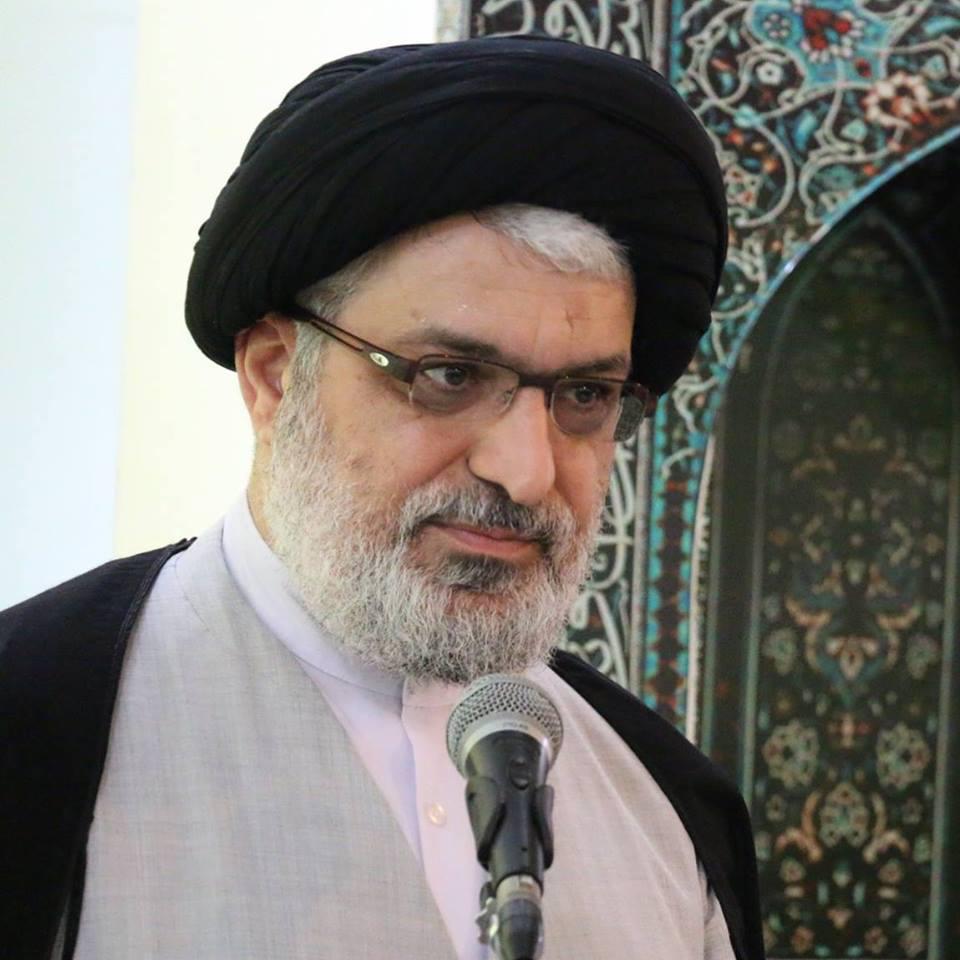
The Islamic Center in London is based in London’s affluent Maida Vale district, a short distance from the famous Abbey Road Studios where the Beatles recorded their music. The iconic building was built in 1913, and was known as Picture Palace where early movies were shown. It was converted into a dance hall in 1949, and then became a bingo hall until the Iranian regime purchased it in the mid-1990s and re-opened it as the Islamic Centre. The center also runs a charity, the Islamic Centre of England Ltd.
Hashem Moussavi is one of the three trustees of the Islamic Center of England Ltd. The charity was investigated last year by the charity regulator and Whitehall officials after it praised General Qasem Soleimani as a martyr and held a vigil for him. More than 2,000 people including Iran’s ambassador at the time attended the vigil. Hashem Mousavi made a speech in which he honored Qassem Soleimani as a “dedicated soldier of Islam” who had died at the hands of “the most wicked members of the human race”.
The charity owns more than 4 million pounds in fixed assets and as a registered charity it is entitled to claim taxpayer-funded gift aid on donations up to 150,000 pounds a year. Despite the investigation, the charity continues to operate, despite its activities conflicting with its declared charitable aims of “advancing the religion of Islam and education, and the provision of social and religious welfare facilities”.
In 2014, the center held an event celebrating the 35th anniversary of the “victory of the Islamic Revolution in Iran.” Among the invitees were the former leader of the UK Labour Party, Jeremy Corbyn. At the time, he was a Labour backbencher, but he would become Labour leader the following year.
At the Islamic Center, Corbyn was introduced as a “very dear friend” who would “make the case for Iran.” He cast Iran as a blameless victim of Western “demonization,” and called for an end to all economic sanctions on the Islamic Republic.
Corbyn also worked for Press TV, the state-run Iranian network, and received a salary from Iran State TV’s English-speaking broadcasting arm.
Other invitees included Hasan Al-Sadr, Iraqi Shia leader Moqtada al-Sadr’s UK representative, and other figures linked to the Iranian regime.
The man who introduced Corbyn as “a dear friend” was Ali Milani, a British citizen of Iranian heritage, who unsuccessfully challenged Boris Johnson’s seat in Parliament in 2019.
In 2017, Milani was criticized for anti-Semitic tweets he made between 2011 and 2013, in which he claimed that Israel had “no right to exist.” He later apologized for his tweets and said, “I have many Jewish friends.”
Last year, Milani’s father, Hassan, was diagnosed with Covid-19 in Iran and died on March 21, the first day of the Iranian New Year. Milani blamed the sanctions on Iran for his father’s death and made no criticism of Iran’s gross mismanagement of the pandemic.
There are of course no sanctions against Iran on medicines, food, humanitarian aid or vaccines. In fact, the Supreme Leader explicitly banned any import of US and British-made Covid vaccines, and the Iranian Red Crescent had to cancel 150,000 doses of vaccines it had ordered after the Supreme Leader banned them.
Ali Milani is not the only Iranian with ties to the Islamic Center who has tried to enter the UK’s legislative body. Ali Avaei , whose father Assadollah is appointed by Iran’s Supreme Leader as the head of the Islamic Center in Manchester, was the Liberal Democrat party’s candidate for Newcastle upon Tyne Central constituency.
Ali Avaei’s uncle, Alireza Avaei was also the Minister of the Judiciary in Rouhani’s administration and one of the judges in the courts that executed more than 5,000 Iranian political prisoners in 1988.
It is surprising that successive British governments have allowed Iran’s Islamic Centers to continue unabated, despite their political agenda and obvious affiliation to Iran’s Supreme Leader.
You can follow Potkin Azarmehr on: https://twitter.com/potkazar and https://t.me/SledgeHammerNews

